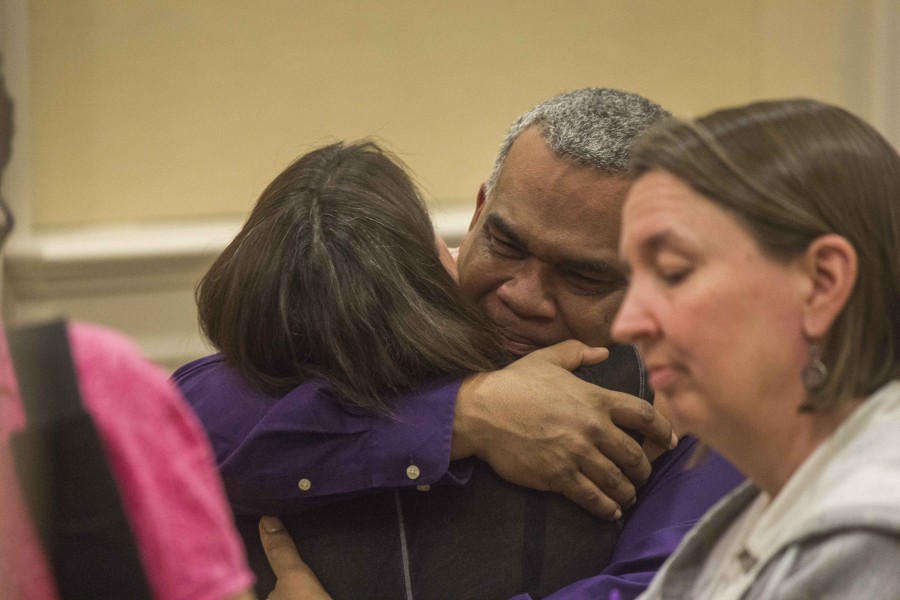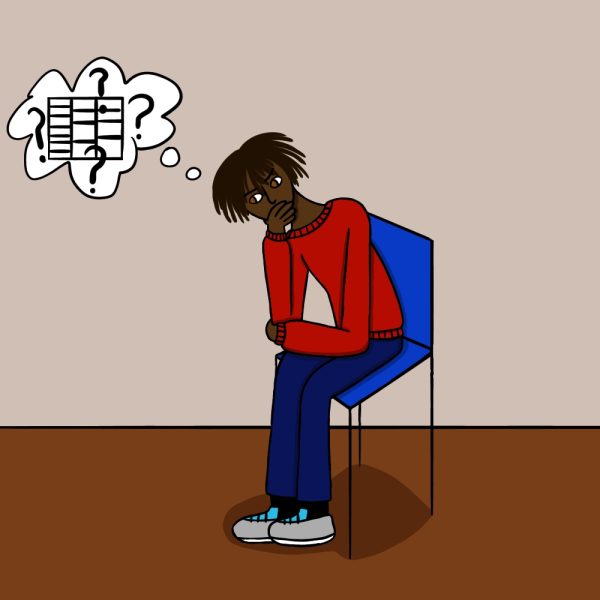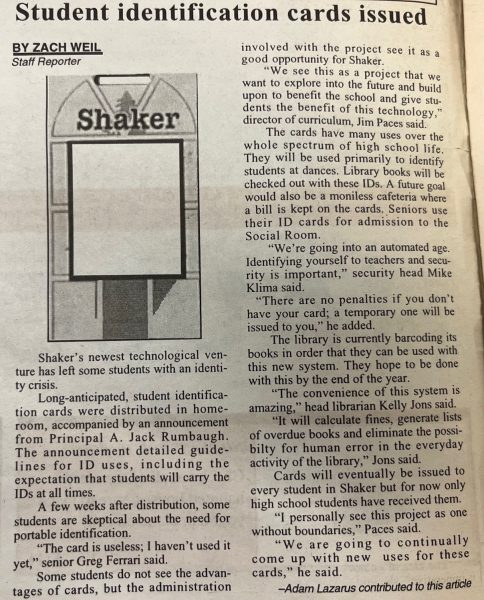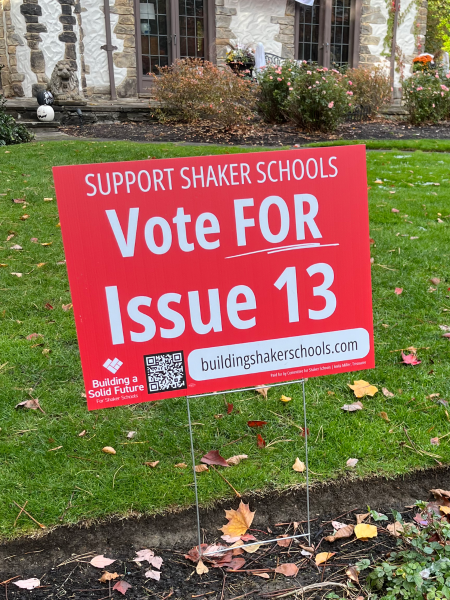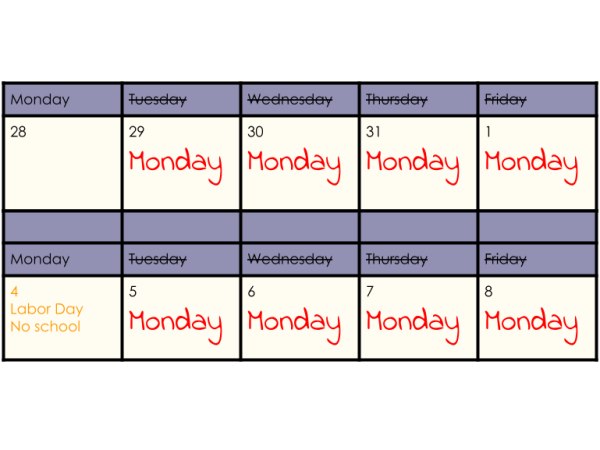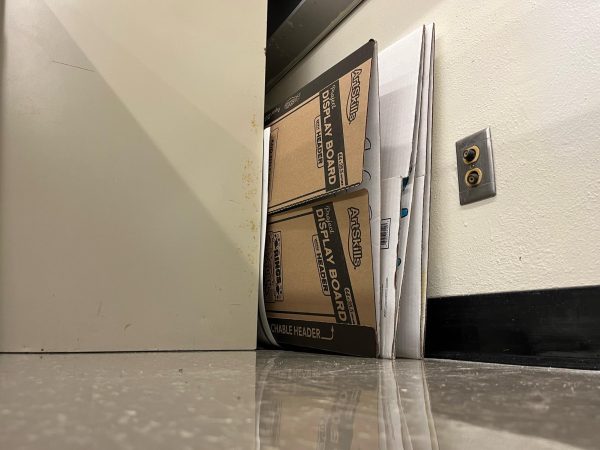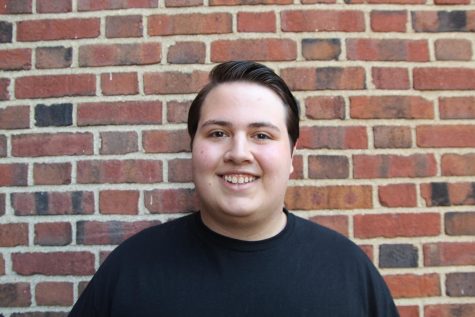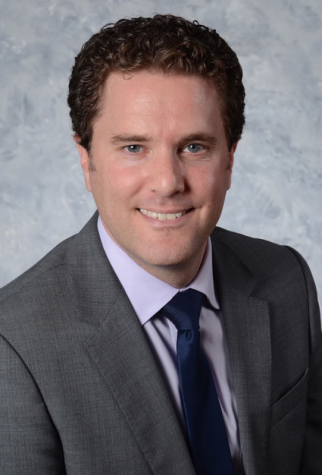‘Rite Idea: Plummeting Morale Demands Change
High school teachers’ frustration with mandates, from above and within, must be relieved to preserve Shaker’s appeal to new generations
After the faculty meeting April 13, where Principal Michael Griffith announced his resignation, he grew teary again and embraced his colleagues.
If teachers’ frustration this year wasn’t already obvious, they spelled it out loud and clear in the Shaker Heights Teachers’ Association open letter, published May 11 on the SHTA’s website by the association’s high school members.
The letter was addressed to the “Shaker Heights City School Board, Central Administration, And Community.” It comprised five areas of concern about the high school: an increase in the micromanagement of teachers, a decrease in teacher autonomy, rash changes in policy, a lack of teacher input and a lack of response from the administration to calls for change.
According to SHTA President and high school English teacher Dr. John Morris, there are 136 high school teachers actively involved in the SHTA and nine who are not association members. Morris confirmed that “over 98 percent of those members sanctioned and supported this letter.”
This astounding consensus came as no surprise after the year Shaker has spent combating overtesting, complicated policy changes involving grading scales and common core requirements and overall miscommunication about these policy changes between administration and high school faculty. With the recent introduction of time-consuming, or may we say, time-wasting, Partnership for Assessment of Readiness for College and Careers testing and a year-long struggle to follow conflicting administrative directives about SLO tests, teachers were left with heads spinning and spirits plummeting as the year dragged on.
The new lows in teacher morale are only reflective of the general distress within the high school population. Roundtable discussion or not, these issues require immediate attention and change.
This general feeling of stress and pessimism can and has affected not only teachers, but also students. We’ve all seen at least one of our teachers come into the classroom distressed on a Tuesday morning after their Teacher Based Team meetings, where even more new and overwhelming testing and data collection requirements were hurled at them.
The administration begins the process by handing down frustrating policies to the teachers, who then disgruntledly implement them in the classroom, disheartening the students who respond poorly. This doomed cycle has proved detrimental to teachers’ health and morale throughout the course of this year; the open letter can attest to that. If we want to uphold the excellence that the Shaker Heights community and school system connotes, we must be mindful of–and respond accordingly to–the issues that arise among students, teachers and community members.
The Board of Education is working on setting a date for a roundtable discussion about the open letter. As of now, July 1 is the most likely date for the forum. However, making an appointment to have a discussion seven weeks later on the Wednesday before a holiday weekend is one thing, and actually making an immediate attempt to fix pressing issues is another.
Perhaps the BOE and central administration should hold monthly forums to get feedback and address concerns from teachers and parents. Or they could survey teachers sincerely on new policies they’re considering, such as unusual grading practices or common assessments. Maybe the district could eliminate one or more optional standardized test from the long, dreary K-12 list. Something must be done to mend the apparent divide, which one parent asked Superintendent Gregory C. Hutchings, Jr. about at the May 21 PTO meeting, between the administration and faculty before it becomes irreparable.
If we continue on this track, Shaker will lose credibility and appeal to prospective employees and residents. The direction we are heading in is upsetting to teachers, students and community members alike. The new lows in teacher morale are only reflective of the general distress within the high school population. Roundtable discussion or not, these issues require immediate attention and change.
It’s true what they say; there really is no place like Shaker. We’ve always welcomed returning alumni to our unique community as a new generation of teachers or parents. There is even a senior superlative titled “forever a Shaker resident.” However, if we want to retain second- and third-generation Shaker families, we must ensure that the current generation is compelled to return.

